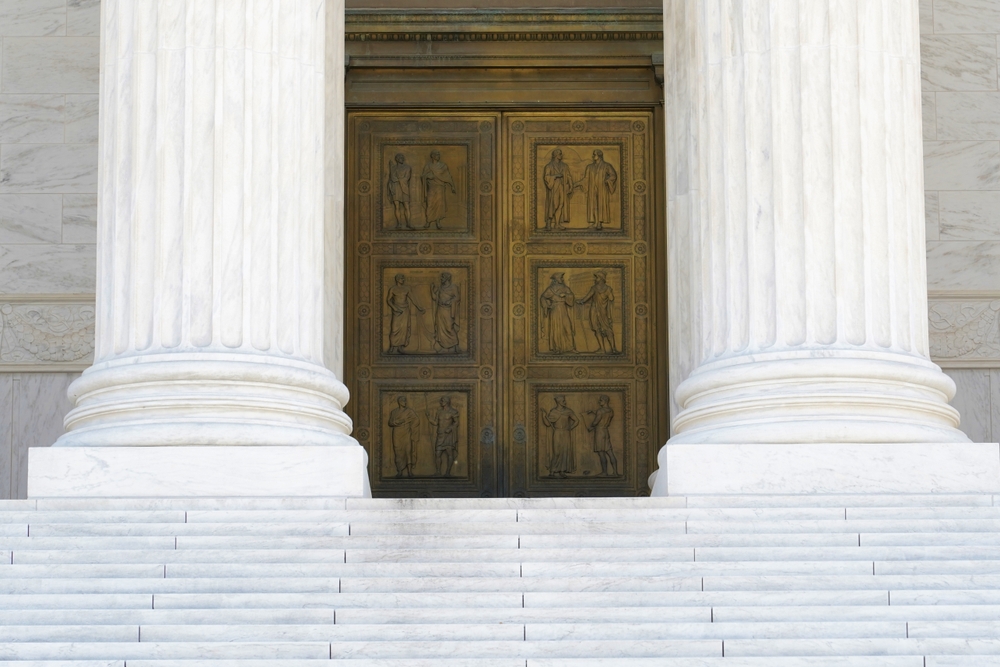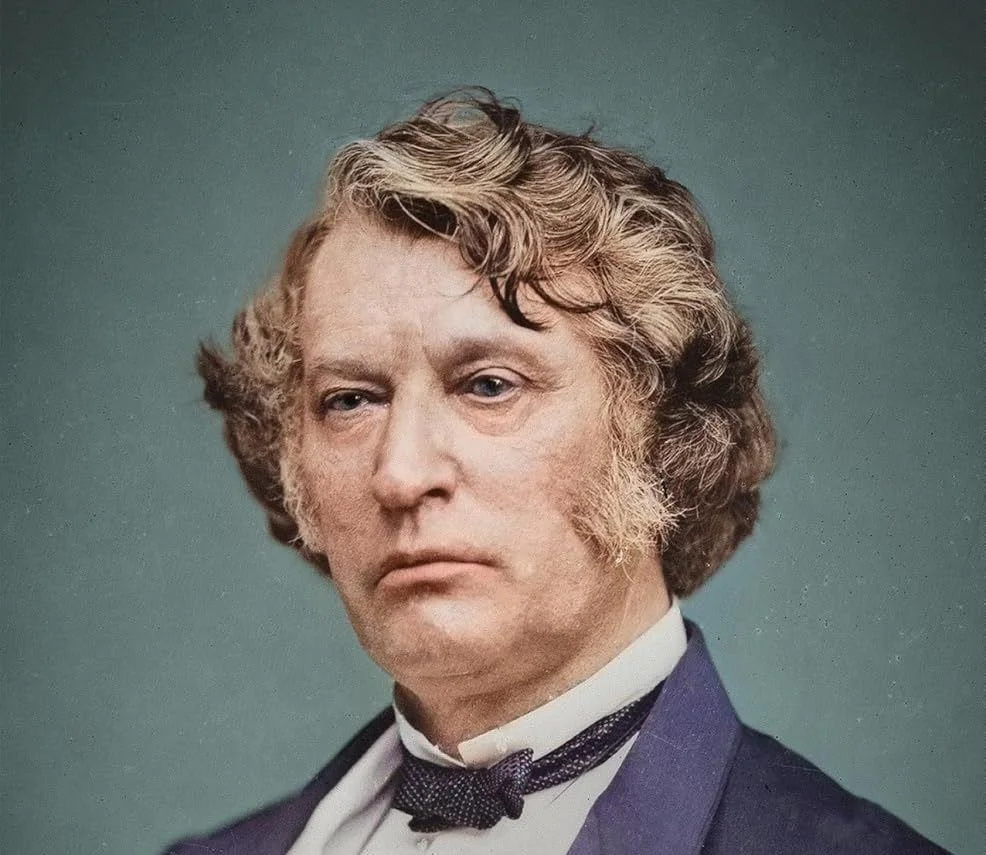.avif)
Will SCOTUS Greenlight the Nation’s First Religious Charter School?
No child is forced to attend a charter school, and religious charter schools will only expand options for parents, increasing innovation and competition.
The school-choice movement is sweeping the nation like wildfire. Texas recently became the sixteenth state to enact legislation providing universal education savings accounts, which allow families to use public funds for private schools and homeschooling. At least two significant developments ignited the movement.
First, the pandemic gave parents a clear window into how much public schools were failing their children. This led to increased demand for alternative types of schools, whether private, charter, hybrid models, or homeschooling.
Second, a triumvirate of Supreme Court cases: Trinity Lutheran Church v. Comer (2017), Espinoza v. Montana Department of Revenue (2020), and Carson v. Makin (2022) reversed decades of Supreme Court precedent that misinterpreted the Establishment Clause to effectively bar public funding from flowing to religious schools. Instead of barring public funding to religious schools, the Supreme Court made clear in these cases that the First Amendment’s Free Exercise clause requires states to provide religious schools with the same public benefits they provided to secular private schools.
No state may provide public funding to private schools, but states may not exclude religious schools and families from public benefit programs, such as tax deductions and tuition assistance, solely because they are religious. The First Amendment’s Free Exercise Clause demands neutrality.
What about charter schools? Where do they fit in? Charter schools are privately owned and operated public schools that contract with the appropriate government entity through a charter to offer a free education open to the public. With substantial freedom and autonomy over curriculum, staffing, budget, and management, charter schools play a key role in the school-choice movement. And given their unique and compelling educational missions and outstanding outcomes, charter schools have become extremely popular, as evidenced by increased enrollment and long waitlists across the country.
The 46 states that have charter schools require them to be secular. But many laws permitting such schools were framed when courts still used the flawed Lemon test to interpret the Establishment Clause. In this era, religious charter schools would have been declared unconstitutional. But that era has passed, as made abundantly clear by the trio of cases mentioned above and Kennedy v. Bremerton (2022). This reality, coupled with the Court’s insistence on neutrality between religion and non-religion, casts serious doubt upon the constitutionality of these laws.
Oklahoma Statewide Charter School Board v. Drummond
On April 30, the Supreme Court heard oral arguments in Oklahoma Statewide Charter School Board v. Drummond and St. Isidore of Seville Catholic Virtual School v. Drummond—a case involving the nation’s first religious charter school. Following an Attorney General Opinion issued by former Oklahoma Attorney General John O’Connor that Oklahoma’s ban on “sectarian” charter schools was unconstitutional, the Oklahoma Virtual Charter School Board approved St. Isidore’s application to operate a virtual, Catholic charter school in 2023. Citing the AG Opinion and the Trinity Lutheran triumvirate, the board explicitly noted that the school could operate in accordance with its religious beliefs.
However, in an unexpected development, the new Attorney General, Genter Drummond, changed course from his predecessor and sued St. Isidore and the charter school board, asking the Oklahoma Supreme Court to invalidate the charter. Drummond argued that charter schools were “public” schools and therefore are required to be secular. The Oklahoma Supreme Court agreed, holding that St. Isidore was indeed a “public” school, not a private one, and therefore could not be religious under either Oklahoma law or the federal Establishment Clause. St. Isidore and the Oklahoma Virtual Charter School Board appealed to the United States Supreme Court.
The case presents two legal questions: (1) whether St. Isidore (and all charter schools in Oklahoma) is a government or private actor, and (2) whether the state violates the Free Exercise Clause by excluding religious charter schools from participating in its charter school program. The first is the more difficult, and likely dispositive, question. If the Court finds that charter schools are private actors, it will very likely hold that excluding them from participating in the charter school program violates the Free Exercise Clause.
One interesting twist to the case is that Justice Amy Coney Barrett recused herself, likely because of her close ties to Notre Dame, whose religious liberty clinic represents St. Isidore. This leaves only eight justices to decide the case, meaning St. Isidore needs all five conservatives, including the Chief Justice, to rule in its favor. A 4–4 decision would leave the Oklahoma Supreme Court's decision in place.
According to Jim Campbell, an attorney from Alliance Defending Freedom representing the charter school board, St. Isidore is a private actor because it is owned and controlled by a private entity with its own board of directors, and the state does no more than exercise “contractual oversight” over charter schools. Under the Court’s previous state-action jurisprudence, mere oversight is insufficient to transform a private entity into a state actor. And because Oklahoma law excludes religious organizations from participating in the charter program solely because they are religious, the Oklahoma Charter School Act violates the Free Exercise Clause.
Gregory Garre, representing Attorney General Drummond, disagreed. Like the Oklahoma Supreme Court, he contended that charter schools are government entities because they come “into existence” because of state charters. They are also designated as “public” schools by state law and remain under “state control.” Therefore, Oklahoma must exclude religious schools from participating in the charter school program lest it violate Oklahoma law and the Establishment Clause.
The Justices’ Questions
The justices seem likely to rule in favor of St. Isidore. Justice Kavanaugh was particularly hard on Oklahoma: “You can’t treat religious people, and religious institutions, and religious speech as second-class in the United States,” he said. “And when you have a program that’s open to all comers except religion . . . that seems like rank discrimination against religion.”
Justice Alito went even further, noting that the case seemed like straightforward religious hostility, citing comments from the Oklahoma Attorney General that targeted Islam: “This whole position that you’re defending seems to be motivated by hostility toward particular religions. . . . We have statement after statement by the attorney general that reeks of hostility towards Islam.” He also noted the anti-Catholic origins of restrictions on funding, in the words of Oklahoma’s constitution, “sectarian institution[s].”
The Court’s three liberal justices seemed ready to side with Oklahoma, noting that this case differed significantly from the trio of religious school funding cases mentioned above. Justice Kagan even went so far as to call charter schools “state-run institutions.” But their three votes won’t be enough.
In all likelihood, the case will come down to the vote of Chief Justice Roberts. He asked difficult questions of both sides. At the outset, he told Jim Campbell that this case differed from the Trinity Lutheran line of cases, which only involved “fairly discrete state involvement,” like paying for playground equipment, tax credits, and tuition assistance. “This does strike me as a much more comprehensive involvement,” he noted. But later he pressed Garre on how this case was different from Fulton v. City of Philadelphia. This 9–0 decision held that the city of Philadelphia violated the Free Exercise Clause when it refused to contract with Catholic Social Services because it refused to certify same-sex couples as foster parents in violation of its religious convictions. Importantly, Chief Justice Roberts authored Fulton, along with Trinity Lutheran, Espinoza, and Makin.
Oklahoma May Not Discriminate on the Basis of Religion
The Court should side with St. Isidore. Educational freedom has been a bedrock of American civilization since before the founding. The Oklahoma Supreme Court’s holding in Drummond threatens to crack this bedrock and transform any private entity that contracts with the government into a state actor. That is not the law, nor could it be. Private parties are free to contract with the government; when they do, they don’t shed their constitutional rights.
Charter schools are private entities, mostly non-profit corporations. While it is true that St. Isidore did not exist in its corporate form until it was chartered, this is the case with every corporation. Moreover, it had the same bylaws and board before and after it was granted a charter. All Oklahoma charter schools must meet certain state standards (e.g., teaching reading, writing, and arithmetic), but otherwise they have nearly complete autonomy over the curriculum they adopt, the teachers they hire (and fire), and how they are managed. They are controlled by a board of directors over which the state has no control, and courts have long held that a state simply declaring an entity to be “public” does not make it a state actor.
This means that the state has nothing to do with St. Isidore’s religious exercise and cannot be held responsible for it. It’s that simple—no control should mean no responsibility. Because St. Isidore is a private actor, the government cannot exclude it from participating in the charter school program solely because it is religious. To do so is a violation of the Free Exercise Clause.
Opponents of religious charter schools are, like Chicken Little, predicting that the sky will fall if the Court rules in favor of St. Isidore. Nothing could be further from the truth. No child is forced to attend a charter school, and religious charter schools will only expand options for parents and increase innovation and competition. States that don’t want religious charter schools can either get rid of charter schools altogether or amend their laws and choose to operate charter schools themselves, i.e., place them fully under state control. But under the current legal regime, states can no longer hide behind a now-repudiated theory of the Establishment Clause to prevent religious entities from participating in charter school programs. The time has indeed come for religious charter schools.
S. Ernie Walton is an Associate Professor at Regent University School of Law. He is the author of numerous law review articles, including Religious Charter Schools: The Time Has Come and Charter Schools and State Action: An Analysis Through the Lens of Agency Law. He also filed an amicus brief in this case.
Mark David Hall is a Professor in Regent University’s Robertson School of Government and Director of Religious Liberty in the States. His most recent book is Who's Afraid of Christian Nationalism?.
Constitutionalism

Amicus Brief: Hon. William P. Barr and Hon. Michael B. Mukasey in Support of Petitioners
Former AGs Barr and Mukasey Cite Civitas in a SCOTUS Brief

Rational Judicial Review: Constitutions as Power-sharing Agreements, Secession, and the Problem of Dred Scott
Judicial review and originalism serve as valuable commitment mechanisms to enforce future compliance with a political bargain.

Supreme Court showdown exposes shaky case against birthright citizenship
Supreme Court will hear challenges to Trump's order ending birthright citizenship, testing the 14th Amendment's guarantee for babies born in America.

Slavery and the Republic
As America begins to celebrate its semiquincentennial, much ink has been spilled questioning whether that event is worth commemorating at all. Joseph Ellis’s The Great Contradiction could not be timelier.

Two Hails For The Chief’s NDA
Instead of trying to futilely plug the dam to stop leaks, the Court should release a safety valve.


.avif)










.avif)



